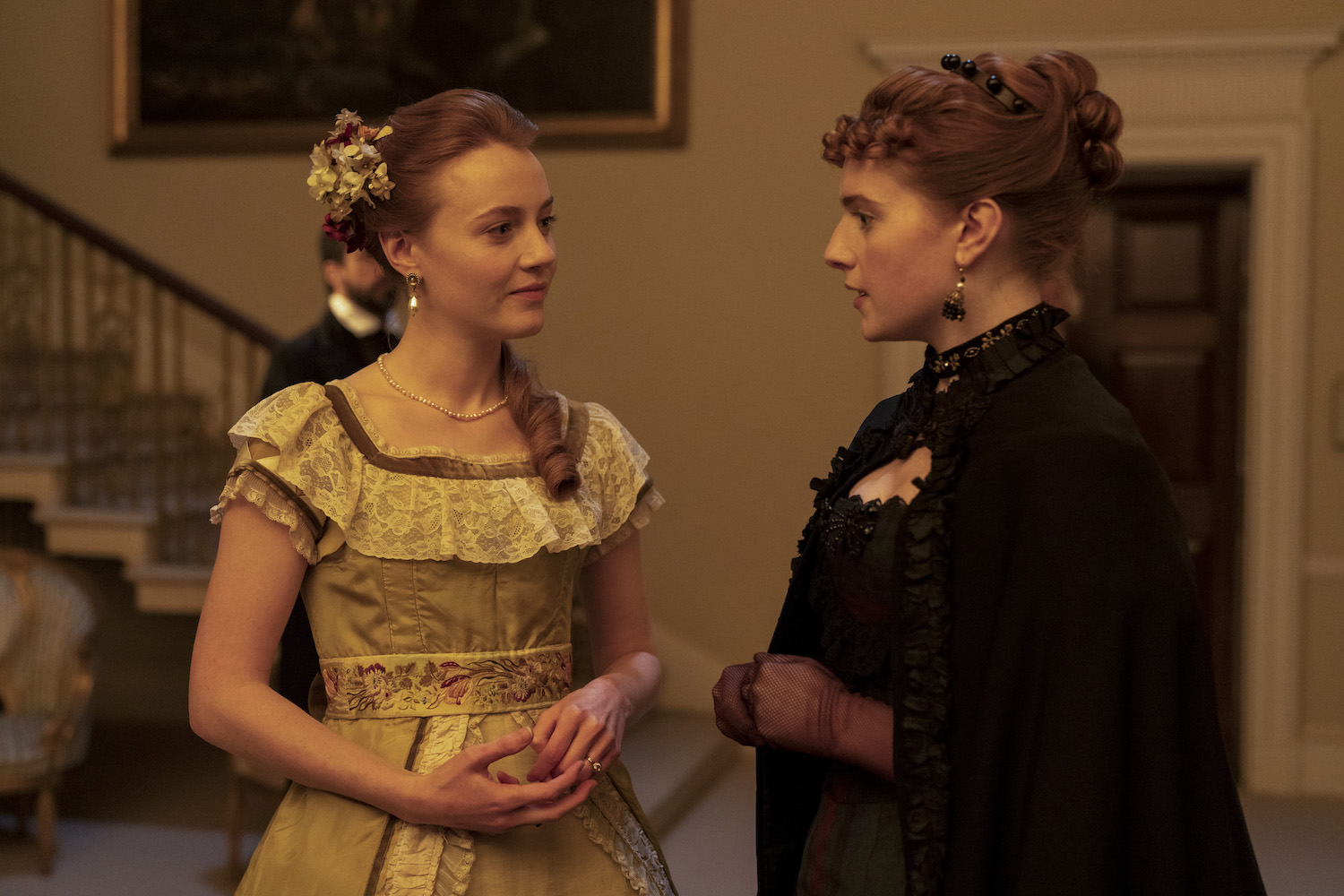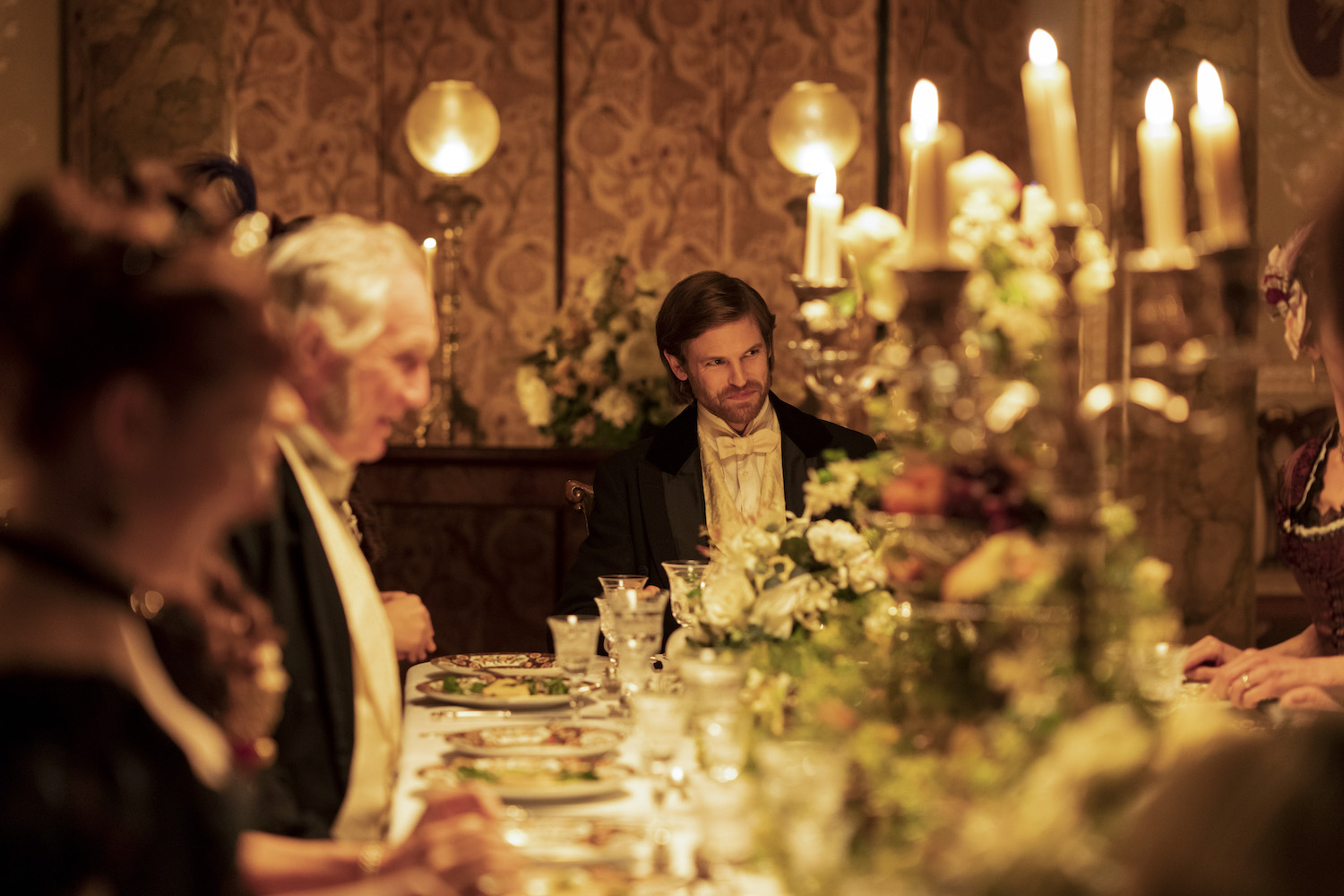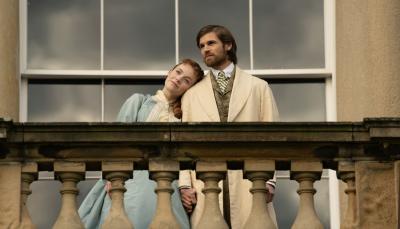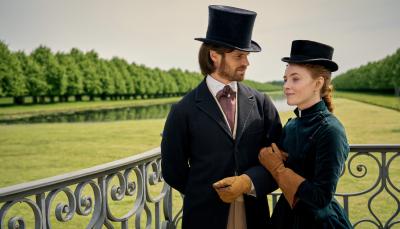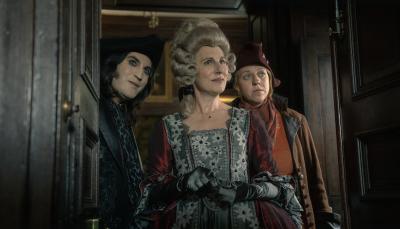As 'Belgravia: The Next Chapter' Continues, James Trenchard Is the Elephant In the Room
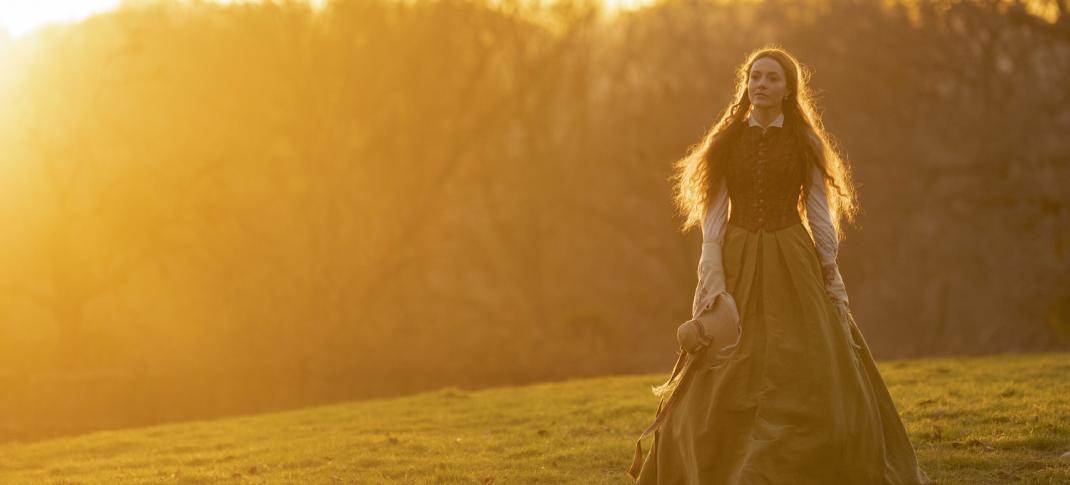
Harriet Slater in "Belgravia: The Next Chapter"
(Photo: Colin Hutton/Carnival Film & Television Limited/MGM+)
There's a reason period dramas usually end with a wedding rather than start with one. Marriage isn't easy, nor do the adjustments required to build a life with someone else always make for compelling television. As Belgravia: The Next Chapter continues, Frederick and Clara's life settles into something more everyday and more challenging than either had expected. (And that's without the whole "she fell down the stairs trying to run away from him in her anger over the way he treated her" thing from last week.)
Much of the season's second episode feels like table setting, in ways the series' pilot managed to avoid. But neither Frederick's obsession with going into business with the Marquise D'Étagnac nor the Rochesters' continued debate about whether their epileptic son can be allowed to visit with his other siblings occasionally are plots that are as interesting as the show seems to think they are, and while Emily Dunn's increasingly obvious (and desperate) attempts to make herself more attractive to local vicar James Trenchard are incredibly over the top, her behavior is as sad as it is entertaining. There's a weird power struggle going on between Clara and the new lady of the house and some of the downstairs servants, particularly Mr. and Mrs. Enright, who both seem reluctant to allow her to rock the comfortable boat of "the way things have always been" but so much.
The show remains at its best when it focuses on the various tensions between the newlywed Trenchards, who collectively brush off Clara's fall with the sort of mutual groveling that means this definitely isn't going to be the last time Frederick's boorish behavior is the cause of some pain (physical or otherwise) for his wife. Everyone is sorry and feels bad! Everyone is willing to forgive everyone else, without really doing any sort of genuine self-reflection! But, hey, Clara, sent Doctor Ellerby away when he showed up for his follow-up visit, so everything's fine again.
A trip to Glanville, the Trenchard family country house, also goes a long way to smoothing things over for the young couple. Clara's impressed by the beautiful estate, claiming that it looks like a perfect spot for the two of them to raise a family one day. She even manages to take the revelation that her husband has a younger brother he's literally never mentioned before in stride. (She learns James exists when she discovers Frederick's childhood nursery had two beds in it. "You never said," she intones calmly, like this isn't a borderline psychotic thing to have left out of his life story. Surprise, I guess?)
Frederick, for his part, wallows in some serious Dad-never-loved-me flashbacks all around the house, remembering some of Oliver's greatest hits, like when he told him he had a bad soul or would always be unloveable. Don't worry, he shakily recalls some of his mother's sage advice as well, about the need to bury your big feelings down deep and never let anyone see you cry because you'll look weak and that's the worst. No wonder he's obsessed with the metaphorical size of his...business empire.
At any rate, at least the trip to Glanville gives Clara and Frederick some much-needed alone time, which ultimately encourages him to be slightly more open about his past than he has before. (Which is a matter of degree, of course, but technically any number is greater than zero.) He tells her about Oliver's death, the way that he only wanted James near at the end, and how his younger brother was so clearly his father's most beloved son. He blames James for turning Oliver against him, because that's a normal thing to credit an eight-year-old with, and begs Clara to love him best. She does, so it's all fine, and the two of them finally find the physical intimacy that so eluded them on their honeymoon. Lord help us when these two ever have kids.
The Trenchards return to London, happier than ever, but it's apparent that Clara's curiosity about James --- and the brothers' relationship -- has come back home along with her. After having gone through the country house, Clara sets about finding out what she can at home, grilling Enright about whether James ever comes to visit or if the two communicate. He warns her off, insisting that she doesn't understand anything about the situation and should leave it alone. To do otherwise, he hints would bring trouble to Frederick.
All this vague hinting is pretty irritating, if only because the show is painfully reluctant to give us any real information about the brothers' relationship. (If we have to watch that flashback about the two of them dressed as knights where Oliver beats Frederick with a toy sword while a tiny James looks on I'm going to lose my mind.)But, as it turns out, Clara isn't the only person growing weirdly obsessed with the younger Trenchard sibling.
Her sister Emily is down bad for the good vicar, and her super obvious attempts to recast herself as a good Christian girl just out to help others (at least as long as it gives her an excuse to see James) are unintentionally hilarious. It's unclear why she thinks that befriending the sad young woman who tried to throw herself in front of a carriage last week is the way to James's heart, but it's hard to argue with her commitment to the bit, even going so far as to hire the girl as a servant in the hopes of getting him to visit her and her mother. James, the poor thing, seems nice enough but totally oblivious, which probably makes more sense than it should, given the household he grew up in.
Emily, as it turns out, is the one who alerts her sister to the fact that James is nearby, regaling the attendees at the Trenchards' first dinner party with the story of how she and her mother acquired their new servant, Nell, and the solicitous vicar who helped save the poor girl. She excitedly drops the news about the clergyman's real identity as Frederick's brother, and the table of guests hums excitedly.
To his credit, at least Frederick doesn't lose it publicly or immediately go into some kind of fugue state where all he can think of is that stupid scene under the tree for the eighteenth time, so perhaps that is what the kids call growth. (Sort of.) Yet, it's also apparent that the news of James living so close has both rattled him and piqued Clara's interest in the family feud she doesn't quite understand. There's absolutely no way she's not about to insert herself directly in the middle of this, which is more predictable than I was hoping this show might be.
Though to be fair, it does open up many pathways for drama, whether it is Frederick's inevitable anger over something else he'll assume James is trying got take away from him or Emily's jealousy about her sister one-upping her once more. It's just less interesting than allowing Clara and Frederick to find a way to navigate this problem together, especially after we've spent the better part of two episodes underlining how much they both genuinely care about each other. Yes, their communication is an absolute mess but they're trying, and that's different enough for this genre to be an avenue that's worth exploring. Or, at least, it ought to be.


